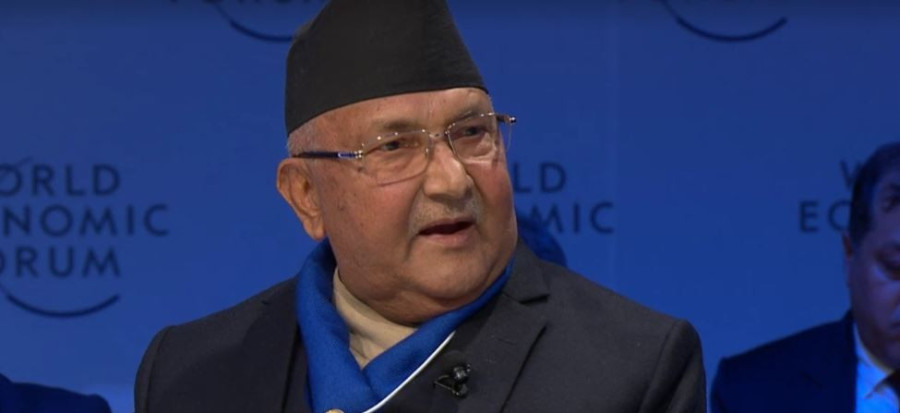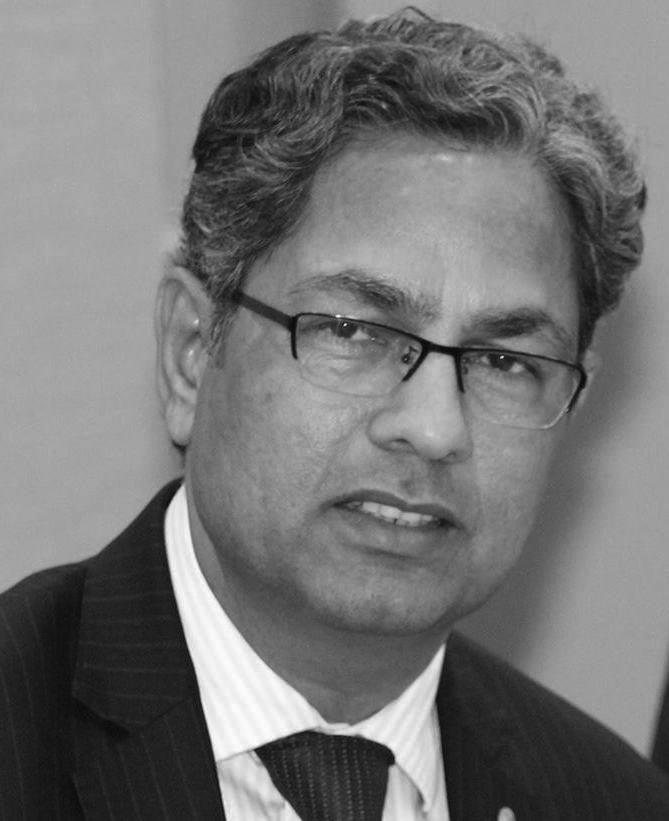Opinion
Nepal's expanding horizon
Oli's Europe tour is expected to further boost an expanding development partnership.
Swaran Singh
After his successful pitch for investments highlighting Nepal's political stability and demographic dividends during his visit to the Davos World Economic Forum in Switzerland last January, Prime Minister KP Sharma Oil's second visit to Europe marks Nepal's expanding horizons in engaging with the wider world. After India, the European Union remains Nepal's second largest trading partner—Britain and France being its major partners. A cascading collapse of authoritarian regimes in Eastern Europe along with the fall of the former Soviet Union from the late 1980s not just coincided with, but perhaps also inspired Nepal's pro-democracy movement leading to the end of its three-decade-old Panchayat regime; finally culminating in Nepal turning into a federal secular parliamentary republic by 2015. In this entire process of Nepal's historic transformation, European nations had been its major partner in the sectors of education, capacity building, disaster relief, environmental protection, as also with their intermittent 'normative' peace projects.
This time around, Prime Minister Oli will start his Europe tour with an address at the centenary celebrations of the International Labour Organisation in Geneva, Switzerland. This underlines Nepal being one of the world's major labour exporting nations with remittances being the country’s most valued source of foreign exchange. The Gurkha units of the British Army represent Nepal's oldest community earning foreign exchange for over 200 years. More recently, many others have also increasingly explored work abroad. This trend was triggered by Nepal's domestic upheavals and economic deceleration during the two decades of the Maoist revolution. Nepal's political stability may have since stemmed this trend somewhat; yet, verifiable remittances for Nepal from its workers abroad have risen consistently from a mere $50 million during the early 1990s and are expected to reach $8 billion for 2018-19. Prime Minister Oli's address will be an important occasion to underline how Nepal continues to work closely with the International Labour Organisation in improving working conditions as also the safety of foreign workers. In addition, Oli will meet Swiss interior minister and former president Alain Berset and address the Nepali community.
Joint declaration
In the UK, Prime Minister Oli will start his tour by first addressing the famous Oxford Union, a debating society that often hosts iconic figures from the world of politics, arts and academics. This will provide Prime Minister Oil an opportunity to underline over two centuries of relations between Nepal and the UK—underlining the fact that Nepal was one country that was never colonised by Europeans—and also elucidate the nature of Nepal's comprehensive and functional democracy and his government's development strategies and its achievements during last two years. He will also interact with the Nepali diaspora, setting the tone for their reconnect with a rising Nepal. Together, these meetings should set the mood for his meeting Prime Minister Theresa May where the two sides are preparing to issue a joint declaration to celebrate 203 years of bilateral relations.
On the flip side, Oli's London visit may become its own nemesis and dwarf the success of his interactions with various European leaders. First, his meeting with Theresa May remains shrouded in uncertainty, given her formal resignation on June 7 and the British political elite being preoccupied with their Cabinet reshuffle to kickstart the next steps in the Brexit process. Second, in such a tension-ridden political climate, Prime Minister Oli is expected to grapple with the complex knots of Nepal's long pending grievances with Britain on discrimination suffered by the British Army's Gurkha units. Compared to British nationals in the same army, Gurkhas have continued to suffer discrimination with regard to their pay, perks, promotion, pension, and post-retirement welfare. The Gurkha Satyagraha United Struggle Committee had recently rejected the last British package of increased compensation, and they had given the UK government a June 1 deadline to meet all their demands. Inside Nepal, the onset of democracy has increased Gurkha veterans' space to manoeuvre. This is especially so because they remain one of the better-resourced communities among Nepalis. Their disaffection with Oli's negotiations with the British government may have its political implications.
Most engaged nation
The Paris leg of Oli's visit should bring some relief as, along with President Emmanuel Macron, Prime Minister Oli will be participating in various programmes to celebrate the 70th anniversary of the setting up of official diplomatic relations between France and Nepal. Prime Minister Oli is scheduled to have a bilateral meeting with his counterpart Edouard Philippe, deliver a special address to announce Visit Nepal Year 2020 and address business leaders. Amongst his takeaways, Prime Minister Oli will be overseeing the signing of their two follow-up bilateral agreements for France setting up a security printing press in Nepal and also putting up Nepal's own satellite in an orbital slot provided by the International Telecommunications Union. The two sides had already finalised and signed the relevant memorandums in principle for this purpose. The printing press will enable Nepal to make its own passports, banknotes, smart cards and examination papers for which Nepal annually spends billions of rupees and stays dependent on other nations.
Overall, Oli's Europe tour is expected to further boost Nepal's expanding development partnership with the European Union that remains a symbol of 'normative power' that the Oli government also aims to emulate along with its drive to ensure political stability and economic development. It was way back in 1973 that Nepal had first established a formal partnership with the European Economic Community leading to the opening of the latter's technical office in Kathmandu in 1992. It was followed by the formation of the European Union in 1993, and there has been no looking back for their ever-intensifying mutual engagement. What makes this especially promising is that Nepal's largest and second largest trading partners—India and the European Union—have both evolved an excellent working relationship in calibrating joint initiatives in Nepal. This perhaps also makes Prime Minister Oli's Europe tour perfect after recent participation in the second swearing-in of Narendra Modi as prime minister of India, where both have once again reiterated their agreement to strengthen their bilateral relations through the regular exchange of high-level visits.
Singh is a professor at the School of International Studies, Jawaharlal Nehru University, New Delhi.




 9.89°C Kathmandu
9.89°C Kathmandu










